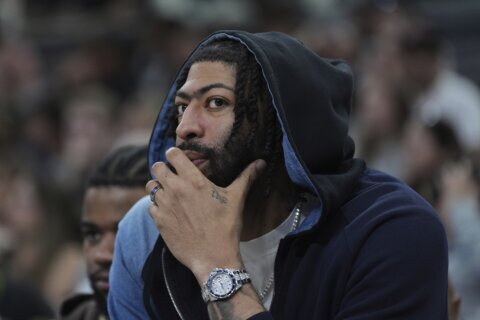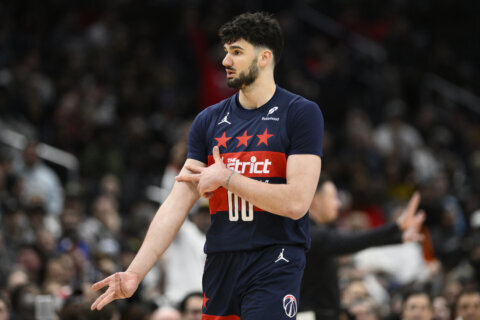WASHINGTON — Last May, the world of the Washington Wizards revolved around the shaky sun of “what if?”
What if John Wall didn’t fracture his hand in Game 1 against Atlanta? What if Paul Pierce’s three counted in Game 6? What if the Hawks didn’t hit a last-second shot in Game 5?
Last fall, plenty of optimism surrounded a young team that had made the playoffs consecutive years and was only going to get better. Only they didn’t.
For the 2015-16 Wizards, the high point was a 2-0 start that came crashing to earth with a home loss to the hot-mess Knicks. A 6-5 mark in December would be the last time they’d have a winning record. A maddening game of tag with the .500 mark while chasing teams ahead of them seemingly running in place would take over the season’s final three months.
A three-game winning streak to end the season would provide little consolation as a 41-41 mark meant no playoffs and the end of the Randy Wittman regime.
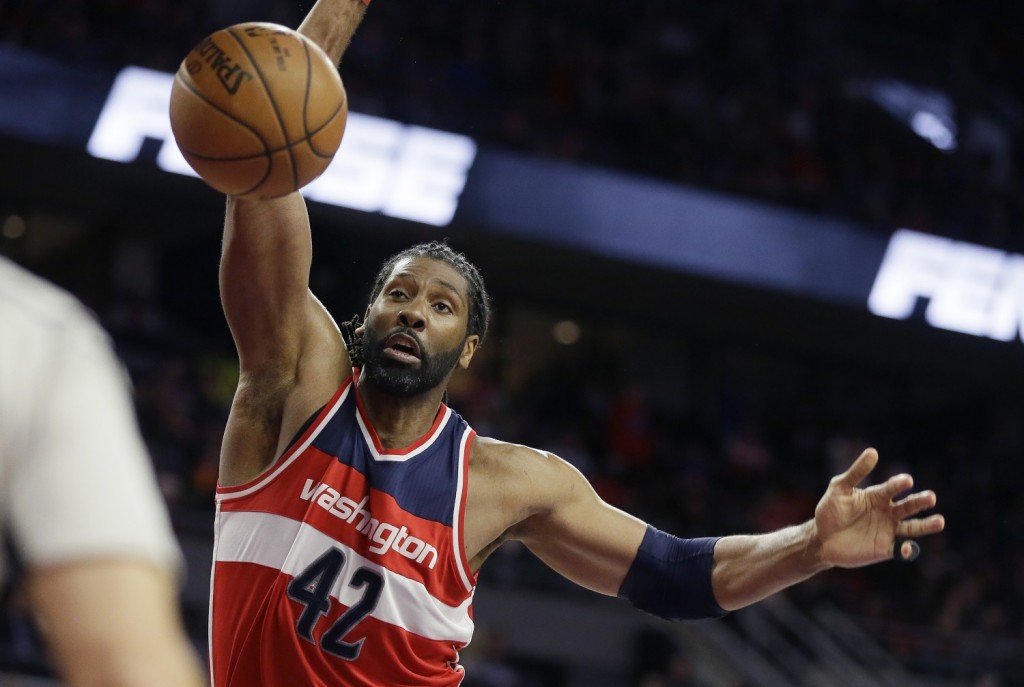
What Happened?
It became apparent early in the season that this team was not the same defensively as the previous two units that made the postseason. The 2014-15 team allowed the 10th-fewest points in the league and allowed the second-lowest opponents’ field goal percentage.
They were tied for third in rebounding margin, ranked sixth in turnover margin, and were 14th in defending the 3-point shot. This season’s edition finished 21st in points allowed, 23rd in opponents’ shooting, 25th in rebounding margin and 26th in turnover margin and defending the three.
Perhaps going with a smaller lineup and playing at a quicker pace exposed this team. Coach Randy Wittman said that after the All-Star Break he tinkered defensively and the team was much better down the stretch. They also lost 284 man-games to injury, the third most in the NBA. But this was still a team that could never find the consistency necessary to make a playoff push.
The locker room was also reportedly fed up with Wittman’s motivational style and more than a few had checked out by April. Wittman should be remembered as the guy who inherited the headaches of Nick Young, Andray Blatche and JaVale McGee and made this franchise somewhat respectable.
Instead, he’ll be recalled as the coach who got the Wizards to a certain level but couldn’t break the 50-win barrier. There is consolation for Wittman — he departs D.C. as the winningest Wizards/Bullets coach in the playoffs (12-9, .571).
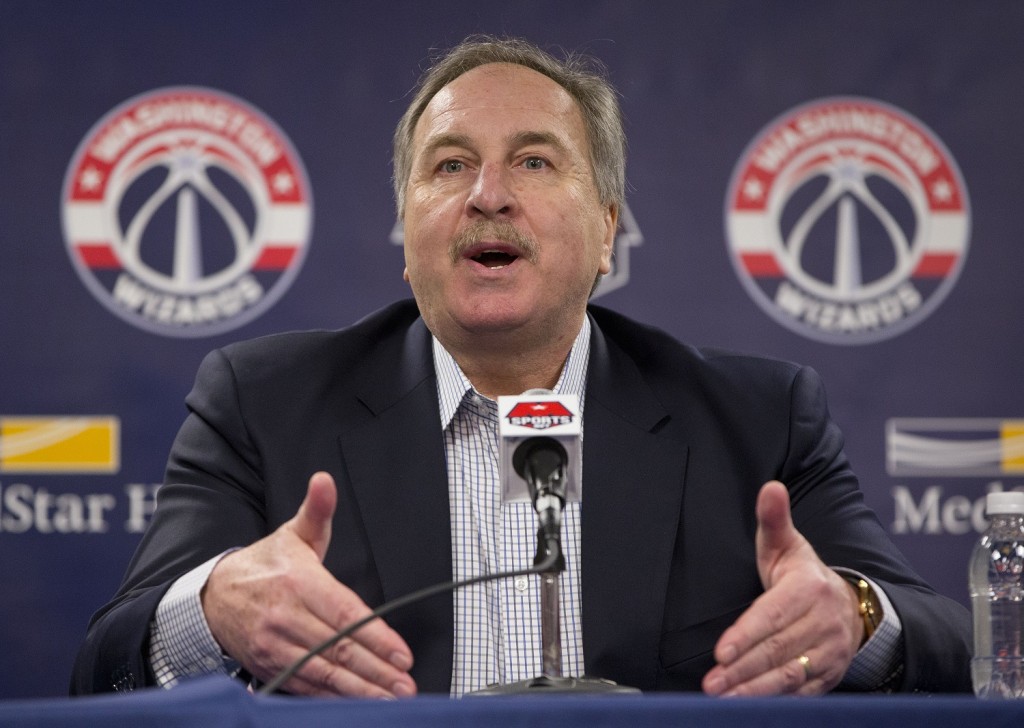
What Now?
General Manager Ernie Grunfeld has been with the team since 2003 but has, for all intents and purposes, made just one coaching hire: Flip Saunders in 2009 (Eddie Jordan was hired 11 days before Grunfeld joined the team and Ed Tapscott finished the 2008-09 season after Jordan was fired, while Randy Wittman was promoted from assistant when Flip was fired before being retained as head coach).
What sort of coaching hire will he make this time, and how much power would he give up to get the coach necessary to lead John Wall and company to the next level? Ex-Chicago coach Tom Thibodeau has already been snapped up by Minnesota, which might be a good thing, as he has a history of playing starters a ton of minutes and Bradley Beal is known for his minutes restriction.
Scott Brooks is the hot candidate. The former Oklahoma City coach has a history with Grunfeld, having played with the Knicks in 1996-97. He also has a .620 winning percentage in the NBA and has experience dealing with superstars of John Wall’s level (ever hear of Kevin Durant and Russell Westbrook?). His recent history with Durant may be an intriguing bargaining chip as the Montrose Christian product is due to become a free agent this summer.
Mike D’Antoni is the guy who you would have wanted to hire if he was fresh from leading a basketball revolution in Phoenix … as opposed to the one who led the Knicks and Lakers on long roads to nowhere.
Mark Jackson was successful in building Golden State to the point where Steve Kerr could take over and lead them to a title, but Jackson had issues getting along with others in the Warriors front office. Would Ernie be cool with “creative conflict?”
Sam Cassell was an assistant with the Wizards during the early years of Beal and Wall and he’s won as a player (three NBA titles with Houston and Boston). Can this team afford to burn a year of John Wall’s prime in order to get a rookie head coach up to speed?
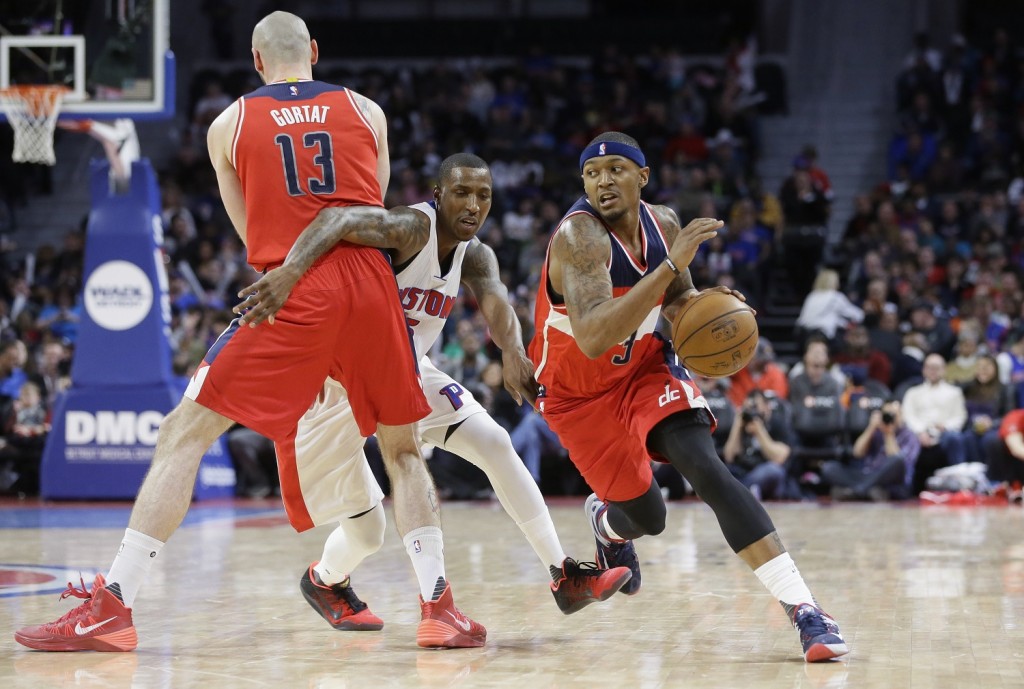
What’s Next?
The new coach might not have 100 percent say in personnel matters, but this will be a different team in 2016-17. While four of their top five players (by minutes played per game) return, seven become unrestricted free agents while two more become restricted free agents (Drew Gooden has a non-guaranteed team option). That leaves plenty of cap room for summer shopping.
Anybody notable hitting the market this summer? Anyone with D.C. area ties?
The elephant in the Wizards’ long-term planning room for the last few seasons has been Durant. And even though his mother says KD’s stating put in OKC, the Wiz will make a genuine run at him.
Other frontcourt big splash possibilities include power forwards Al Horford and Larry Sanders as well as small forwards Harrison Barnes and Nicholas Batum.
Of the Wizards’ crop headed to free agency, the biggest question surrounds the status of Bradley Beal — he is a restricted free agent and is reportedly looking for a max contract. But the guard has shown a knack for being banged up, having made 60 starts just once in his four-year career. Does the ghost of previous max deals (ahem, Gilbert Arenas anyone?) haunt this front office as they make a decision on Beal?
It also remains to be seen if any players with expiring contracts return. Brazilian big man Nene is off to compete for his nation at home in the Summer Olympics; who knows what happens after that, as he’s 33 years old and has been limited as of late by injuries. Drew Gooden has played well when healthy, but he’s 34 and needs ice bags on his knees more often than not after games.
Jared Dudley admits he’s “not a first, second or even third option for most teams,” but wouldn’t mind returning. Ramon Sessions played in all 82 games this past season and averaged 18 points and 10 assists while starting the last five games of the year. Both are decent “glue players” every good team needs, but each is 30 years old.
Garrett Temple is 29 and mentioned that the Wizards were the first team where he actually felt like he was owning instead of renting (4 years in D.C. after spending first his two years with five different teams) … but may be one of those players who gets lost in the shuffle with a coaching change. Alan Anderson says he’d like to return to justify the 4 million dollars the Wizards paid him for just 13 games … but what will he cost, and what should a GM risk given Anderson’s recent injury history?
Twelve months removed from what felt like the best May in the franchise history since the 1970s, the Wizards’ brass has more than enough questions on their plate. The next 12 weeks will go a long way toward determining how Ernie Grunfeld’s tenure as team architect will be remembered.



